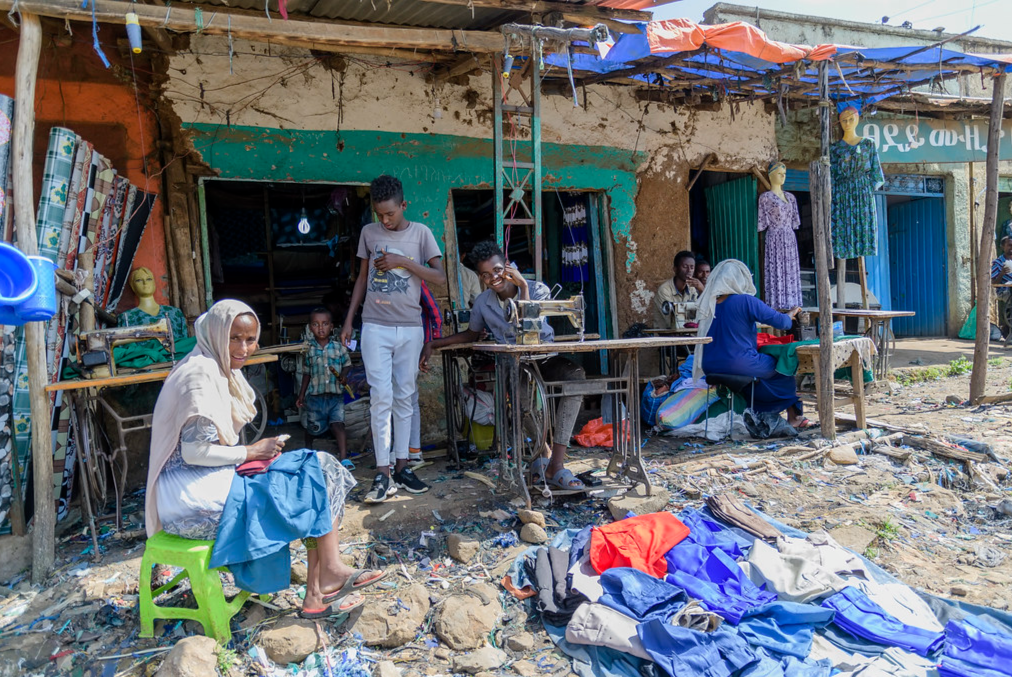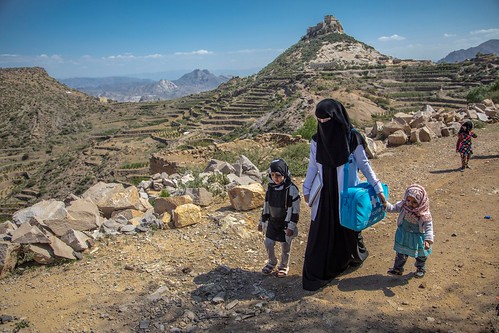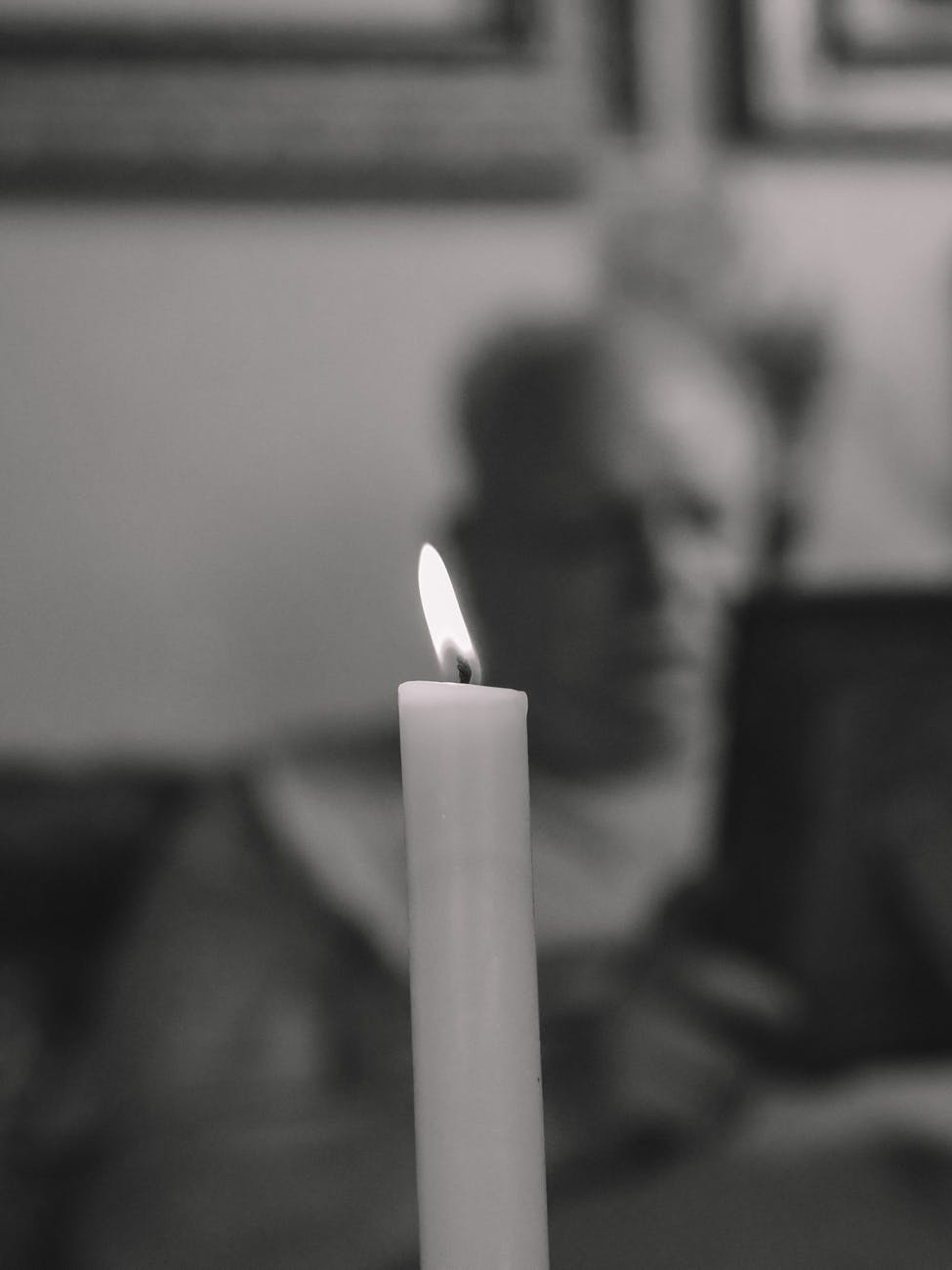The 48th Regular Session of the Human Rights Council
13 September - 8 October 2021.
ITEM 10 - Technical assistance and capacity-building in the field of human rights in the Democratic Republic of the Congo
Interactive Dialogue on the High Commissioner’s Report on the Democratic Republic of the Congo and final report of experts on Kasai.
5 October
By: Amie Sillito / GICJ
Executive Summary
The 36th meeting of the 48th Regular Session of the United Nations Human Rights Council considered the reports of the High Commissioner for Human Rights (A/HRC/48/47) and the team (A/HRC/48/82) during an interactive dialogue.
The session examined the report which highlighted human rights violations under the state of siege in the DRC. The report documented the decrease in the number of violations and highlighted the positive steps government has taken to protect and uphold such rights through government institutions. The report also highlighted weaknesses in the judicial system which allow ongoing violations to continue. The report revealed that the majority of violations were perpetrated by state officials, particularly in conflict ridden areas where there was a significant military presence. The level of sexual violence was also raised as a concern as well as the lack of resources and support provided to victims following such ordeals.
A significant number of delegations commended the government on its progress in protecting and upholding human rights, particularly the adoption of legislation and legislative mechanisms to facilitate the process. The presence of extremist groups in the North and East provinces were highlighted as a major issue, particularly since they caused significant instability and violence. The levels of ethnic violence in the Kasai region were also examined and the government was urged to hold perpetrators of these crimes accountable to ensure peace and security. The numerous attacks on human rights protestors and the media were underscored by various NGOs who called on the government to protect the rights of such groups and uphold the right to right to freedom of expression.
Background
In Human Rights Council resolution 45/34 the High Commissioner was tasked with preparing a comprehensive report on the situation of human rights in the Democratic Republic of the Congo and submit it to the Council at its forty-eighth session. In the same resolution, the Council decided to renew the mandate of the team of international experts on the situation in Kasai. The team was asked to present a final report to the Council at the forty-eighth session.
Historically, the Human rights situation in the Democratic Republic of the Congo has been a cause for concern even though recent reports indicate a decrease in the number of violations and abuses documented by the United Nations Joint Human Rights Office. Calls have been instituted for better protection to be provided to civilians in conflict affected areas to protect fundamental human rights. Media personnel have faced significant hardships in reporting human rights abuses and violations in the state, attributable to the historically politicised and controlled reporting platforms. The current report examined the current state of media reporting and attacks on journalists under the state of siege in order to determine whether improvements have been made to uphold the rights of journalists and civilians.
Report of the Hight Commissioner for Human Rights
Report A/HRC/48/47 on the situation of human rights in the Democratic Republic of the Congo.
The overall number of human rights violations and abuses documented by the Joint Office decreased by 3 percent from 1 June 2020 to 31 May 2021 compared to the preceding reporting period, however the consequences of such problems remain worrying. The report of the High Commissioner highlighted that nearly 46 percent of violations were committed by State officials, primarily members of the Armed Forces of the Democratic Republic of the Congo and officers of the Congolese National Police. It is apparent that violations involving the restriction of democratic space have declined as well as a reversal in the increasing trend of violations committed relating to activities of armed groups.
However, attacks against journalists, human rights defenders and other civil society actors continue, including violent crackdowns on peaceful demonstrations. Fundamental freedoms have been restricted including in the context of the implementation of measures designed to curb the spread of the COVID-19 disease. Civilians continue to be attacked by armed groups in conflict-affected provinces and even though the number of documented violations has decreased, the number of victims of summary and extrajudicial executions increased. Provinces highlighted as problem areas for high levels of violence include the provinces of North Kivu, Ituri, South Kivu and Tanganyika.
Efforts to combat impunity show progress, evident in the conviction of senior military officials and commanders of armed groups for war crimes and crimes against humanity, including crimes of sexual violence. Notable progress can also be seen in the passing of two bills by the National Assembly on 9 November 2020 and 7 April 2021, the first covered the protection and promotion of persons living with disabilities and the other on the promotion and protection of the rights of indigenous Pygmy peoples in the Democratic Republic of the Congo. However, the consideration of bills on the protection and responsibilities of human rights defenders, which would promote and protect the right to protest and access to information, did not make any significant headway.
Government has taken action to remedy human rights issues plaguing the DRC, with the Joint Office recording a decrease on the order of 23 per cent in human rights violations and abuses related to the democratic space during the reporting period. Violations and abuses documented during the reporting period occurred mainly in the provinces of North Kivu, Tanganyika, Kasai, Haut-Katanga and South Kivu against the backdrop of tensions within the ruling coalition, the use of hate speech by members of political parties, members of civil society and community leaders, and the imposition of restrictions on fundamental freedoms by provincial authorities. Many violations were committed during the period of the implementation of COVID-19 measures to protect the population including those put in place under the state of emergency declared between 24 March and 21 July 2020. State actors were found responsible for 84% of human rights violations relating to the democratic space whilst the other 16% were committed by armed groups. The most commonly reported violations include the right to liberty and security of the person, the right to freedom of opinion and expression and the right to physical integrity and life. Majority of the victims of such violations were members of civil society organisations and media professionals. The report found that majority of human rights violations and abuses were committed in North Kivu Province with majority committed by combatants of armed groups. Security and defence forces were also responsible for serious human rights violations, including extrajudicial executions, sexual violence, violations against the right to physical integrity, and the arbitrary arrest and illegal detention of civilians.
In its concluding observations on the fourth periodic report of the Democratic Republic of the Congo, the Human Rights Committee urged the Government to take all necessary measures to ensure that all cases of sexual violence are investigated and that the perpetrators are prosecuted. The Committee recommended that physical and psychological support should also be provided to victims of such crimes. In its concluding observations on the combined sixth and seventh periodic reports of the Democratic Republic of the Congo, the Committee on the Elimination of Discrimination against Women called on the State to prosecute all acts of violence against women upon complaint by the victim or ex officio, to punish the perpetrators. It was also recommended that all judicial decisions be executed, and that compensation is paid to victims as well as setting up a comprehensive care system for victims.
Interactive Dialogue on the High Commissioner’s Report
Geneva, 5 October 2021.- At the 36th meeting of the 48th Regular session of the Human Rights Council, the Deputy High Commissioner held an interactive dialogue regarding human rights abuses in the Democratic Republic of the Congo under Item 10 of the Agenda.
The Deputy High Commissioner for Human Rights, Ms. Nada Al-Nashif, presented the report of the High Commissioner on the Democratic Republic of the Congo stating that progress was seen in the country however the country still faced serious challenges to safeguarding human rights, particularly in Eastern provinces. She highlighted the number of summary and extra judicial killings which were reported to have risen.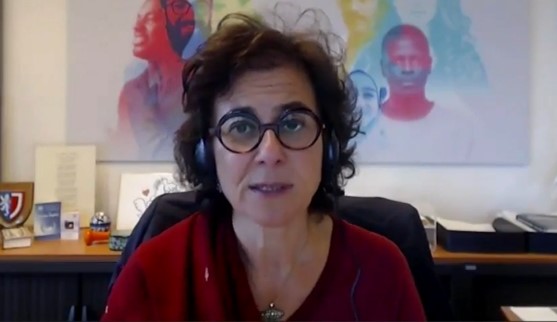 Majority of human rights violations were found to occur in areas of armed conflict, particularly North Kivu and Ituri. At least 3.5 million people have been identified as being displaced due to armed conflict, the second largest number of internally displaced persons in a single state. She stated that whilst national and regional efforts have been made to repress human rights violations, more needs to be done, especially through the adoption of further legislation to protect and promote such rights. She concluded that the joint Human Rights Office will continue monitor and report on the human rights situation and provide technical assistance throughout the country to promote and preserve human rights.
Majority of human rights violations were found to occur in areas of armed conflict, particularly North Kivu and Ituri. At least 3.5 million people have been identified as being displaced due to armed conflict, the second largest number of internally displaced persons in a single state. She stated that whilst national and regional efforts have been made to repress human rights violations, more needs to be done, especially through the adoption of further legislation to protect and promote such rights. She concluded that the joint Human Rights Office will continue monitor and report on the human rights situation and provide technical assistance throughout the country to promote and preserve human rights.
The President of the Human Rights Council proceeded with the interactive dialogue and opened the floor to interested delegations. Angola welcomed progress made by the DRC authorities in continuing the fight against impunity through the decentralization of transitional justice and accountability for sexual abuses. The delegate went on to emphasize that the country fully supports the recommendations of the report as a contribution to the strengthening of constitutional capacities at all levels. She concluded that Angola remains committed to ensuring lasting peace and the effective realization of human rights in the DRC.
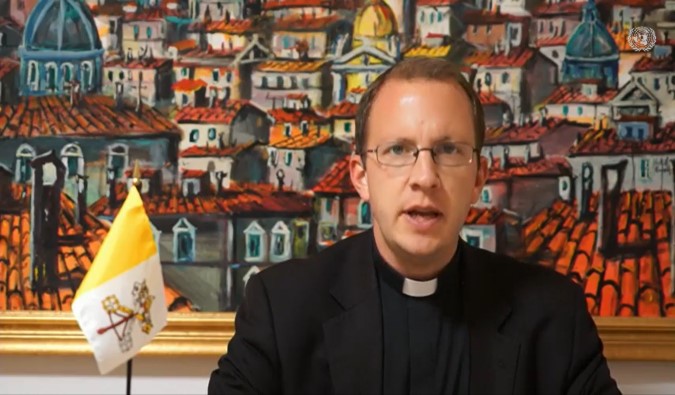 The delegate for the Holy See emphasized that the jurisdiction is especially concerned about the tax imposed upon the Catholic Church and church institutions in the DRC. The delegate also called on all stakeholders to ensure that the electoral process leading up to and including the 2023 presidential elections to be carried out in a free, transparent, inclusive, and democratic manner. He emphasized that any attempt to modify the electoral process should be carried out in a non-discriminatory and transparent fashion alongside the full engagement of civil society whilst conforming to the country’s Constitutional principles. Security was also a concern of the jurisdiction, particularly the East of the DRC where Allied Democratic Forces have carried out attacks on civilian populations including the destruction of Catholic churches. The delegate made his concluding remarks, asserting that the increasing activity of extremist groups demonstrates further steps to consolidate logistical operations between Sudan and Mozambique which facilitate the illegal transfer of ammunition leading to further destabilization in the region. And that more needs to be done to prevent such activities.
The delegate for the Holy See emphasized that the jurisdiction is especially concerned about the tax imposed upon the Catholic Church and church institutions in the DRC. The delegate also called on all stakeholders to ensure that the electoral process leading up to and including the 2023 presidential elections to be carried out in a free, transparent, inclusive, and democratic manner. He emphasized that any attempt to modify the electoral process should be carried out in a non-discriminatory and transparent fashion alongside the full engagement of civil society whilst conforming to the country’s Constitutional principles. Security was also a concern of the jurisdiction, particularly the East of the DRC where Allied Democratic Forces have carried out attacks on civilian populations including the destruction of Catholic churches. The delegate made his concluding remarks, asserting that the increasing activity of extremist groups demonstrates further steps to consolidate logistical operations between Sudan and Mozambique which facilitate the illegal transfer of ammunition leading to further destabilization in the region. And that more needs to be done to prevent such activities.
The delegate for the United States of America welcomed the DRC government’s commitment to respecting human rights.  He acknowledged the ongoing challenges including human rights abuses perpetrated by armed groups and encouraged the government to tackle such issues and achieve further progress. The delegate emphasized that the USA remains concerned over reports of ethnic violence in the Kasai region and urged the government to protect its civilians and hold perpetrators of rights violations accountable and engage local communities to diffuse tensions. The DRC government was urged to uphold and protect the right to freedom of expression and condemn crackdowns on activist groups and the media. The delegate highlighted that under the state of siege, human rights defenders face grave threats, and that the USA condemns the killing of journalists and calls for transparent investigations into the deaths of numerous journalists in the DRC. The delegate posed the question to the High Commissioner of what recommendations could be offered to the DRC government to protect the right to freedom of expression and engage communities affected by violence.
He acknowledged the ongoing challenges including human rights abuses perpetrated by armed groups and encouraged the government to tackle such issues and achieve further progress. The delegate emphasized that the USA remains concerned over reports of ethnic violence in the Kasai region and urged the government to protect its civilians and hold perpetrators of rights violations accountable and engage local communities to diffuse tensions. The DRC government was urged to uphold and protect the right to freedom of expression and condemn crackdowns on activist groups and the media. The delegate highlighted that under the state of siege, human rights defenders face grave threats, and that the USA condemns the killing of journalists and calls for transparent investigations into the deaths of numerous journalists in the DRC. The delegate posed the question to the High Commissioner of what recommendations could be offered to the DRC government to protect the right to freedom of expression and engage communities affected by violence.
The United Kingdom expressed that despite the progress made in the DRC, it remained concerned about the volume of human rights violations and abuses in the country. The delegate emphasized that the UK was also worried about the repression of journalists, human rights defenders, and civil society actors. The UK called on the government to ensure that human rights and international human rights law is respected and that the state of siege has clear, measurable and time limited aims and that its impact is evaluated. The delegate commended the government for fulfilling its international commitments through legislative reforms and improving state capacity. The delegate concluded that the UK encourages the DRC government to increase efforts to address human rights violations and combat the culture of impunity that persists in the DRC.
The session concluded with NGOs providing statements on the situation in the Democratic Republic of the Congo. NGOs reiterated the statement made by United Kingdom in that the state of siege in the country was concerning, specifically with regards to human rights abuses. One NGO in particular emphasised that the state of siege was not an appropriate response to address the conflict in the Democratic Republic of the Congo and the human rights abuses in the most belligerent provinces. It was highlighted that access to justice remains a serious concern and a lack of progress made within the judicial system relating to cases concerning violence against protesters from 2015 to 2018. The Council was called upon to maintain critical ongoing efforts towards ensuring accountability including the team of international experts on Kasai.
Position of Geneva International Centre for Justice
The high levels of sexual and physical violence carried out against women and children remains deeply concerning and Geneva International Centre for Justice urges the government of the DRC to prioritise these issues. Perpetrators of such crimes should be held accountable through a properly funded judicial system and competent judiciary to ensure the rule of law is upheld. We urge the Council to carry on its mandate and continue reporting on the situation in the DRC to ensure civilian rights are protected and the government is held accountable for its commitments.
The government of the Democratic Republic of the Congo is encouraged to ensure that government organs have sufficient resources to fulfil the government’s mandate to protect human rights. Reporting channels for such violations must be made accessible to the entire civilian population and investigations must take place expeditiously to ensure justice and stability in the region. It is imperative that the government remains transparent in its process of reconciliation and that it works with the international community to facilitate such processes. GICJ encourages the opening up of the democratic space and the protection of journalists and human rights activists according to international law. The government must take action against military personnel who fail to function within the parameters of international law. It must also investigate and remove high- ranking officers from security forces implicated in cases of human rights violations.
Lastly, education centres must be set up throughout the country providing all civilians with platforms to educate themselves about their rights and civic responsibilities. Centres for victims of human rights violations must also be improved to ensure all victims have access to help.
Justice, Human rights, Geneva, geneva4justice, GICJ, Geneva International Centre For Justice
Previous Reports from the 48th Session of the UN Human Rights Council




